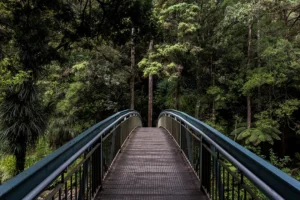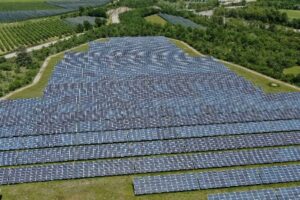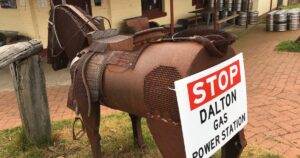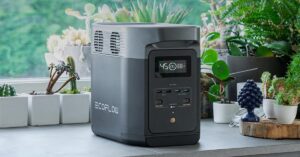Here are the winners of India’s first green hydrogen and electrolyser subsidy auctions
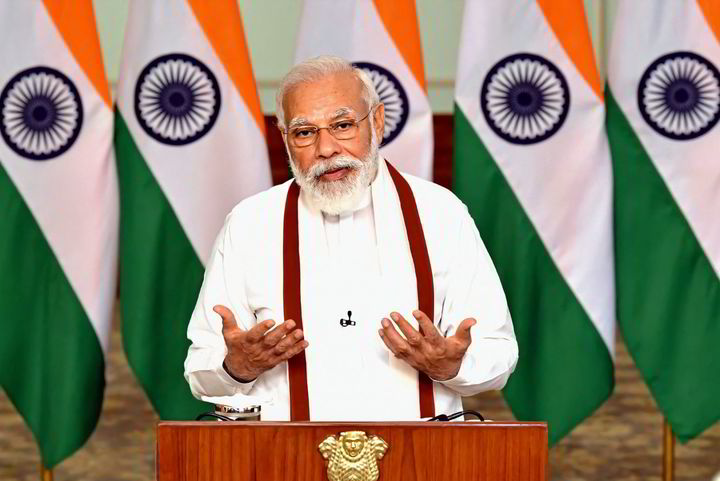
India’s first auction for green hydrogen and electrolyser subsidies has published its results, with industrial conglomerate Reliance a big winner in both tenders.
The green hydrogen auction, which offered a per-kilogram maximum of 50 rupees ($0.60) in the first year, 40 rupees in the second, and 30 rupees in the third, awarded subsidies to eight companies (see table below) out of thirteen bidders.
Mumbai-based Avaada, Singapore-headquartered Sembcorp and GH4India — a joint venture between Indian Oil, ReNew, and Larsen & Toubro — all lost out on their bids, which applied for subsidies in all three years.
In addition, two companies, UPL Limited and CESC Projects Limited, were included in the list of winners despite not bidding for any subsidies at all.
This bulked up the awarded production capacity to a total of 412,000 tonnes of H2 per year, just below the cap of 450,000 tonnes per year.
Winners of green hydrogen production subsidies in India’s first auction
Article continues below the advert
|
Company |
Bid capacity (tonnes/year) |
Requested subsidy for year 1 (rupees/kg) |
Requested subsidy for year 2 (rupees/kg) |
Requested subsidy for year 3 (rupees/kg) |
Average incentive (rupees/kg) |
Allocated production capacity (tonnes/year) |
|
Reliance Green Hydrogen and Green Chemicals Limited |
90,000 |
0.03 |
28.32 |
28.35 |
18.9 |
90,000 |
|
Welspun New Energy Limited |
20,000 |
0 |
30 |
30 |
20 |
20,000 |
|
HHP Two Private Limited |
75,000 |
50 |
25.13 |
0 |
24.0433 |
75,000 |
|
Torrent Power Limited |
18,000 |
25 |
34.1 |
27.57 |
28.89 |
18,000 |
|
ACME Cleantech Solutions Private Limited |
90,000 |
50 |
40 |
0 |
30 |
90,000 |
|
Greenko ZeroC Private Limited |
90,000 |
50 |
40 |
0 |
30 |
90,000 |
|
JSW Neo Energy Limited |
10,000 |
50 |
40 |
14 |
34.6667 |
6,500 |
|
Bharat Petroleum Corporation Limited* |
2,000 |
30 |
30 |
30 |
30 |
2,000 |
*The only bidder for subsidies ringfenced for “biomass-based pathways”
Source: Solar Energy Corporation of India
India is aiming to produce five million tonnes of green hydrogen annually by 2030, with the cost of production reaching parity with grey H2 made from unabated natural gas in the latter half of this decade.
However, the subsidy per kilogram is extremely low compared to those offered in the US and Europe, with analysts cautioning that in order to compete with grey, the cost of both round-the-clock renewable electricity and electrolyser prices must fall.
Meanwhile, the auction for electrolyser manufacturing subsidies, which offered a maximum incentive of 4,440 rupees per kilowatt of capacity sold, assuming local content and domestic sales conditions are met, was even more competitive.
Out of 21 bids — 14 for any technology and seven specifically for Indian-developed electrolysers — only eight winners were announced (see table below), meeting the cap of 1.5GW of manufacturing capacity.
While Adani, the industrial conglomerate founded by billionaire Gautam Adani, had bid in capacity for both tranches, it only secured partial subsidy for the latter.
Winners of electrolyser manufacturing capacity in India’s first auction
|
Company |
Bid manufacturing capacity (MW/year) |
Awarded manufacturing capacity (MW/year) |
Maximum incentive allocation (million rupees/year) |
|
Reliance Electrolyser Manufacturing Limited |
300 |
300 |
4,440 |
|
Ohmium Operations Private Limited |
137 |
137 |
2,027.6 |
|
John Cockerill Greenko Hydrogen Solutions Private Limited |
300 |
300 |
4,440 |
|
Advait Infratech Limited (consortium with Rajesh Power Service Private Limited) |
100 |
100 |
148 |
|
Jindal India Limited |
300 |
300 |
4,440 |
|
L&T Electrolysers Limited |
300 |
63 |
932.4 |
|
Homihydrogen Private Limited* |
101.5 |
101.5 |
1,502.2 |
|
Adani New Industries Limited* |
300 |
198.5 |
2,937.8 |
*Bid for subsidies ringfenced for Indian-developed technology
Source: Solar Energy Corporation India
US-based Ohmium already has a 500MW electrolyser factory in operation in India, with plans to expand this to 2GW.
Belgian manufacturer John Cockerill also aims to build a 2GW plant in the country, in partnership with one of India’s biggest clean-energy developers, Greenko; while Indian conglomerate L&T (Larsen and Toubro) has agreements in place to use the technology of two European electrolyser makers — France’s McPhy and Norway’s HydrogenPro.
Fellow Indian conglomerate Reliance Industries — run by Asia’s richest man, Mukesh Ambani — plans to build a 1GW factory producing low-cost electrolysers designed by Denmark’s Stiesdal.
